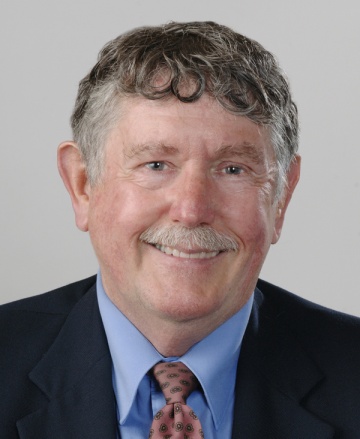Columbia College | Columbia University in the City of New York
Take Five with Bruce Trinkley ’66

What were you like when you arrived at Columbia?
I grew up in two small towns in West Virginia. In Princeton, W.Va., I had a piano teacher, Russell Falt, who had a degree from Teachers College and had studied with renowned Viennese pianist virtuoso Robert Goldsand in New York. Russell encouraged me to consider going to NYC and study with Goldsand, too. “Ah,” I thought, “I will never get out of West Virginia, let alone go to New York City.” But my dad retired from his job as a mine safety inspector and instructor and we moved to Los Angeles. In L.A. my choral director was a grand lady named Alice Sturdy, who also had also gone to Teachers College. So my dream became one of going to Columbia and becoming a high school music teacher!
My introduction to Columbia — upon exiting the cab at 114th Street from Idlewild Airport — was an upperclassman barking, “Are you a freshman?” “Yes,” I proudly replied. This official “greeter” then stuck a beanie on my head and said, “That’ll be a dollar.”
Imagine how excited I was when the first Spectator of the semester had a lead article saying that Robert Goldsand was going to be teaching at the College that fall! So with my beanie in hand (or on head), I got to study with my teacher’s teacher — and I knew that all would be well.
What do you remember about your first-year living situation?
All freshmen were assigned to New Hall, now named Carman Hall. It was a stylish, spanking new “high-rise” in 1962. By contrast, to my freshman mind, Furnald seemed cramped and antiquated and made me appreciate even more the height and luxury of New Hall.
What class do you most remember and why?
I had excellent teachers in my major courses. I especially remember Music Humanities with Peter Westergaard; voice lessons with great American soprano Shirlee Emmons; music theory with Christopher Hatch GSAS’51; music history with distinguished musicologist Joel Newman LS’42, GSAS’62; and composition seminars with the greatest composition faculty of any school in the country: Vladimir Ussachevsky, Otto Luening and Jack Beeson (who himself was Bartók’s only composition student). I did indeed have piano lessons with Robert Goldsand, in the penthouse of Milbank at Barnard, where he would stretch out on a divan smoking his cigar, looking out the window and listening intently to my wrestling with Bach, Debussy and Schoenberg.
But my most memorable learning experience was being a member, singer and accompanist for the Columbia Glee Club. I will always treasure singing in the Junior Varsity Glee Club for freshmen with Jerry Weale CC’57, a superb conductor and still a good friend, and then with the inimitable Bailey Harvey, affectionately known as “Oats,” since his name was frequently mangled into “Barley Haivey”! Oats taught me everything I needed to know as a choral conductor, and I found it worked for musicals, and orchestras and chamber groups, as well.
Did you have a favorite spot on campus, and what did you like about it?
The office of Columbia Players in the basement of Ferris Booth Hall with the beat-up old upright piano with tacks in the hammers, which had been added to replicate a harpsichord. This space became my workshop. This is where I wrote my first musicals, including The Bawd’s Opera (the Varsity Show of 1966), Feathertop (the Varsity Show of 1967) and The Pill, the first rock musical, which opened six months before Hair played at the Public Theatre. I should also mention Wollman Auditorium, where my musicals were premiered “on Broadway” and where the Glee Club performed regularly, when not singing in Low Library.
What, if anything, about your College experience would you do over?
If by “do over” you mean relive just the way it happened, I think of visits to back booths at The Gold Rail, on Broadway between 110th and 111th, where several of us music composition majors would compose, fueled and inspired by multiple pitchers. Also: visits to the Fulton Street Fish Market at 5 a.m. after a night of intense study or socializing. And I am pleased that the magnificent V&T is still serving the best pizza and Italian food in the city.
If by “do over” you mean live differently, I admit that many times through the years I regretted that I did not take courses in other disciplines, especially considering the giants who then taught at Columbia. But a music major in those days had the highest number of credits required for graduation, right up there with physics majors. So the few free electives I had were invested in courses in French, German and Italian, all of which were germane to my career goals and proved invaluable in my profession of choral director, opera composer (but always in English!), and professor of opera literature and history and orchestration.
But Columbia taught me how to teach myself. So, though it would have been great to take courses in history, philosophy and literature at alma mater under those astonishing masters, I think I chose wisely at the time and for my career.
More “Take Five”
- 1 of 32
- ›

